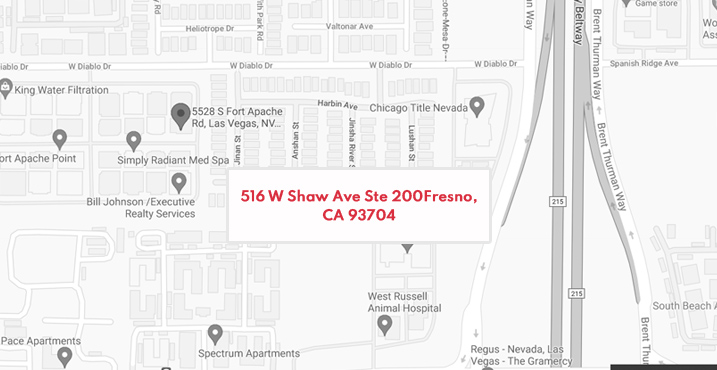How Does Supervised Visitation Work in California?
Supervised visitation is always a court-ordered mandate that allows the non-custodial parent to spend time with their child, but always in a safe, secure, and third-party monitored environment.
The California court always does what is in the child’s best interest. Supervised visitation wants to maintain the child’s relationship with their non-custodial parent but demands that only be done under observation; if supervised visitation is mandated,
In California, if the court orders supervised visitation, you can see your child, but a court-appointed “supervisor” must be present during all visits. These meetings can be held at home, an outside facility, or any designated safe location.
The court-ordered supervisor can be a trained professional, an appointed reliable family member, or any other qualified adult.
The supervisor is critical to these visits and holds full responsibility for monitoring the child’s safety, welfare, and well-being and any parental-child interactions. Court-ordered supervision is commonly used when the prior home environment had evidence of abuse or domestic violence, if there is parental drug abuse, mental health issues, etc.
The neutral third-person supervisor will always watch over the child, listen to what is said, and have the power to intervene if necessary.
Court-ordered supervised visitation is ordered for many reasons, but some of the most common ones are;
- A parent who now wants to spend time with their child, but they’ve not had a relationship, for whatever reason, for a long time, or ever.
- The child’s safety is a concern due to previous (or current) alcohol or drug abuse of the parent, a history of mental health problems, or previous physical or psychological abuse of the child or other spouse.
- The parents have previously tried to abduct the child and more.
This is a highly emotional and sensitive subject in any divorce. If you’re considering it (or having it done to you), the professional advice and knowledgeable guidance of an experienced, empathetic, and diligent Fresno family lawyer will prove invaluable.
As the Custodial Parent, How Can I Best Deal with Supervised Visitation?
If you’re a custodial parent, supervised visitation can be a highly stressful and challenging process. You are used to tending to your child, and supervised visits for your ex-partner can sometimes be a significant issue and disrupt your schedule, etc.
Many possible issues may cross your mind, such as will these visits affect my child or their relationship with me, and more.
Areas of concern are understandable, and as the custodial parent, you may not even agree with the rules established by the court. However, there are things that you do have control over that can help you manage this process and make it work better for you and your child.
Just a few of these items are;
- Read the court order comprehensively, and have your lawyer help you understand it if needed.
- Explain the entire process to your child, such as where it will occur, how the supervisor can help, and more.
- Be clear with your child when these visits will occur and how often.
- Have your child ready with anything they will need during the visits.
- Make sure you drop off and pick up your child on time.
- Encourage your child to have fun during these visits and support them in having a positive relationship with your ex-partner.
· After the visit, don’t interrogate your child about it. However, do listen carefully if your child shares information with you.
If you have questions, your Fresno Family lawyer, who is well-versed in these matters, will always be there to explain the process and help fully mitigate any issues.
What Is the Process to Request Supervised Visitation?
If you want your child to have supervised visitation with your ex-partner and have reasons for asking for it, you should discuss the matter in detail with your child custody lawyer. The process of requesting supervised visitation may differ from county to county in California, but generally, it is as follows;
- Your lawyer will file a request with the court – This is the first step in the process and must be drafted correctly and professionally by your lawyer. It must also address and include all the details explaining why supervised visitation is requested.
- Notice will be served on your partner, etc. – This notice must be served to all parties involved before proceedings can occur and the case moves forward.
- A court hearing will take place – The court will hold a hearing to read and consider the request for supervised visitation. At this hearing, all parties involved will be allowed to make their case for or against the request.
- The court will consider all the evidence and arguments and make a decision – Then, if supervised visitation is mandated, all parties involved will enter into a supervision agreement that will, in detail, outline all the terms and conditions to be followed during these visits. Details, such as where these visits will happen, how frequently, and all other pertinent information, will be included.
When the courts grant supervised visitation, they consider many factors and have significant latitude in this decision and its details. However, the most critical factor they will always strive for is the safety and well-being of the child.
Can Supervised Visitation Be Terminated, and Why?
Yes, supervised visitation can be terminated by a court order or an agreement between all the various parties involved. For example, the court may issue an order if it feels that supervised visitation is no longer needed or is now not in the best interest of the child.
However, always note that any agreement to terminate this arrangement must be professionally drafted, correctly done, and approved by the court.
All cases differ, but some of the most common causes used to terminate supervised visitation include things such as;
- Your child no longer requires the protection of supervised visitation.
- All parties involved agree to terminate the process.
- One party or the other hasn’t complied with the terms of the supervised visitation order.
- One party may be unable or unwilling to continue with this type of visitation.
- Your or your partner’s situation has changed significantly, and therefore, supervised visitation is no longer appropriate or beneficial to you or the child.
Another vital thing to note and discuss with your knowledgeable Fresno family lawyer is that even if supervised visitation is terminated, the California court still retains jurisdiction over your case and can still issue change orders if the child is in danger of any kind.
I Need More Information About Supervised Visitation; How Should I Proceed?
Setting up supervised visitation in California can be legally complex as the state has particular procedures and guidelines to manage these arrangements.
The guidelines cover generalities such as how often supervised visits happen but can include very specific rules that the supervisor will enforce. It’s critical to note that the consequences for breaking these rules are harsh and can result in the termination of the supervised visitation agreement.
The family and child custody lawyers at The Bains Law Offices know just how passionate, emotional, and stressful drafting and handling these agreements can become. However, they also have the history, skill, and knowledge to deal with all the legalities of these supervised visitation agreements with a significant degree of expertise, depth of knowledge, and the ability to negotiate these agreements and make them effective and acceptable to all concerned.
Call them today for a case analysis at 559-282-8924, and they provide you with the highly passionate and personal guidance you need at this critical time.









